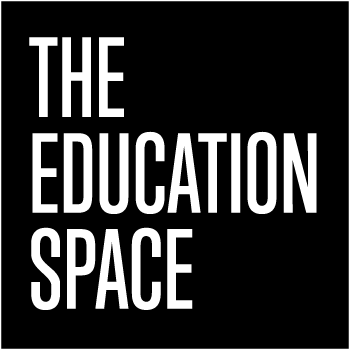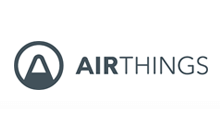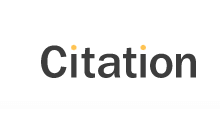Governors’ and Trustees’ Annual Conference Report November 2022
Schools do not exist in isolation. They are part of a larger system. Therefore, it is only right that, as system leaders, their Governors and Trustees should naturally not only focus on their own schools as organisations, but also on how their schools fit into the system and how they can benefit from it. This almost certainly will necessitate working collaboratively, forming coalitions, and forging partnerships.
 The London Borough of Newham holds some excellent examples of partnerships, which are nationally renowned and which work with schools to improve the outcomes for children to prepare them for the future.
The London Borough of Newham holds some excellent examples of partnerships, which are nationally renowned and which work with schools to improve the outcomes for children to prepare them for the future.
This year’s Governors’ and Trustees’ Annual Conference, held on Thursday 24 November 2022, show-cased some of Newham’s most successful partnerships, hearing voices from the Local Authority, the East London Research School, the London District East Teaching School Hub, the New Vision Hub, the London North East Maths Hub, Newham Learning, and our very own Newham Partnership Working (The Education Space).
Patrick Alexander, Newham’s new Head of Education (Outcomes and Partnerships) opened the conference by setting the local context, reporting that Newham has 94.3% good or outstanding primary and secondary schools (as at October 2022 according to Ofsted inspection ratings), and would be ranked fourth in inner London and eighth nationally.
Patrick presented stats on Newham’s performance in Key Stage 1 Reading, Writing, Maths (above London average), Key Stage 2 higher standard Reading, Writing, Maths (remaining in the top 10 local authorities in England, with attainment ahead of London, England and statistical neighbour averages), and Key Stage 4 GCSE: Attainment 8 (rank position of 17th being the highest the authority has seen since the introduction of new curriculum and assessment structures in 2015/16). Data from schools on A level results 2022 showed that 50% of grades awarded were an A* or A, well ahead of England (36%) and London (39%). Including colleges, Newham’s Average Point Score for each A level showed Newham ranked second nationally.
Patrick reported that Newham had the second lowest number of unknown / not in education, employment or training (NEET), in comparison with East London neighbours and was below the regional average. 61% of school leavers chose to stay in Newham establishments.
Key note speaker, Dr Julian Grenier CBE, focussed on the immediate and long-term benefits of high-quality early years education, and the work undertaken by the East London Research School, of which he is Director.
Julian has worked in early years for over 20 years and has a Doctorate in Education from the UCL Institute of Education (University of London). He was appointed by the Department for Education to lead on the 2020 revision of Development Matters, the non-statutory guidance for the Early Years Foundation Stage in England, and was awarded a CBE for services to Early Years Education in the Queen’s Birthday Honours, 2022.
He fascinated delegates by playing a video made showing early years practice at Sheringham Nursery School and Children’s Centre, where he is Headteacher, which showed techniques employed to enhance the development of the child through interaction and expansion of vocabulary.
Schools were invited to sign up for the early years evidence-informed Newham Communication Project, which is a free resource to all Newham schools with a nursery class.
Craig Lilleyman talked about the DfE’s Golden Thread for Teacher CPD in the context of the work of London District East Teaching School Hub, of which he is a Director.
The Teaching School Hub is designated by the Department for Education to serve all schools in Newham, Barking & Dagenham and Havering. This is a new organisation, which is run through the Boleyn Trust, a MAT with eight primary schools in Newham and Tower Hamlets.
The Teaching School Hub has five key areas of work stipulated by the Department for Education: rolling out the Early Career Framework reforms delivering the new, funded NPQs (National Professional Qualifications), Initial Teacher Training, providing Appropriate Body services and working with Curriculum Hubs to offer other CPD.
Iqbal Vaza gave an overview of the ten year journey of Newham Partnership Working (NPW) – The Education Space - where he is CEO. NPW was formed as a schools-owned company in 2012, comprising support services to schools. With the majority of positions on the Board of Directors being held by school senior leaders, services and support are shaped by ongoing conversations with Headteachers and Governors, to keep offers relevant. Iqbal reported that over £0.25m had been saved by schools, through NPW’s market-analysis and tendering strategies to ensure value for money. Iqbal’s presentation drew attention to the fact that we are all part of an education eco-system, with a shared purpose of preparing children for the future.
David Bailey, Interim Director of Newham Learning, challenged delegates to consider some popular myths, such as questioning if school improvement started with improving teaching, and if inner city schools were more difficult to turn around, in order to demonstrate the foundations of school improvement.
Delegates had the opportunity to attend two workshops. The first, delivered by Education Consultant, Ian Wilson, was on the importance of effective succession planning; a topic that comes up again and again when we ask Governors and Trustees to identify areas for Board development.
The second workshop focussed on the work of the New Vision English Hub and the London North East Maths Hub, both run at Elmhurst Primary School, and was led by Katie Tidmarsh, English Hub Lead, and Samira Islam, Maths Hub Lead.
New Vision English Hub is one of 34 English Hubs at primary schools across England. The Hub supports schools to improve the teaching of early language and reading. Each Hub school has been chosen for its track record in excellent teaching of reading.
Hub schools are able to offer funding and free support to schools. Support provided by the hubs will focus on the following three areas:
- Early-language development and ‘closing the word gap’.
- Age-appropriate phonics: encouraging fidelity to a single systematic synthetic phonics programme and supporting the effective use of decodable books in the early stages of learning as a way of establishing phonic decoding.
- Promoting a love of reading through a focus on reading aloud, encouraging reading at home and developing teachers’ knowledge of children’s literature.
The Maths Hubs Programme, coordinated by the NCETM, brings together mathematics education professionals in a collaborative national network of 40 hubs, each locally led by an outstanding school or college, to develop and spread excellent practice, for the benefit of all pupils and students. Our aim is to ensure that all pupils, teachers and leaders have access to support, training, and innovation that will improve the enjoyment and achievement of mathematics, from Early Years through to the post 16 sector.




